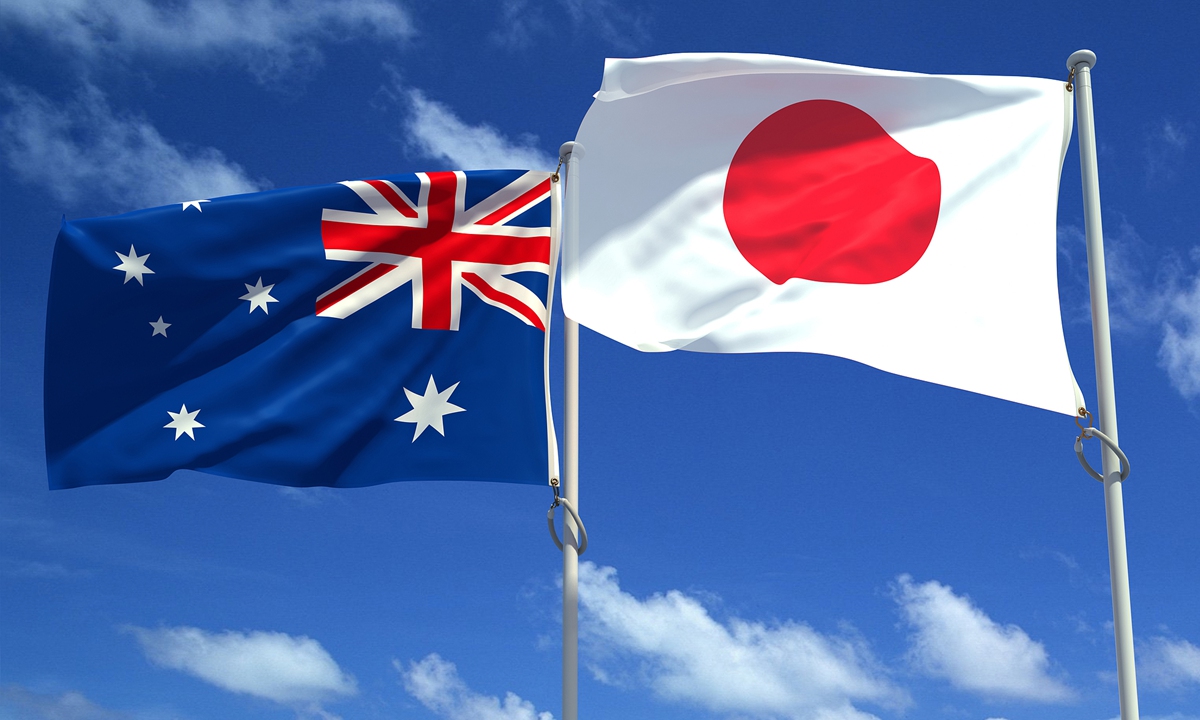

Australia Japan Photo: VCG
Australia, Japan and the US committed on Sunday to closer military cooperation in training their armed forces, agreeing to the regular deployment of Japanese troops to Darwin in northern Australia.
Chinese observers said the “cooperation” signals a dangerous shift in Japan toward further militarization, and the irony was especially profound given that Darwin was a key base for Allied forces in World War II and was heavily bombed by Japanese military forces to a point that it is sometimes described as “Australia’s Pearl Harbor.”
Under the new agreement, Japan’s Amphibious Rapid Deployment Brigade will be deployed to Darwin to regularly work and train alongside Australian and US troops, VOA reported.
About 2,000 US Marines are already hosted in Darwin, the capital of the Northern Territory, for six months a year. According to Reuters, the military deployment is attributed to growing concerns among Washington and its allies about China’s growing military power in the Indo-Pacific region.
Japan’s new Amphibious Rapid Deployment Brigade will participate in the annual U.S.-Australian exercises held by the Marine Rotational Force-Darwin, starting with Talisman Saber 2025 and working toward the country’s first air and missile defense training event in 2027. edition, according to Defense One.
The increased coordination between Japan, Australia and the US will take place under a new structure called the Trilateral Defense Consultations, Defense One reported, citing Australian Defense Minister Richard Marles.
The trilateral defense meeting unveils a clear agenda: strengthening military cooperation in the Asia-Pacific region, in line with the US Indo-Pacific strategy. The so-called security problems in this region are largely fabricated and serve as a pretext for these countries to strengthen their military ties while at the same time portraying China as a threat, a hypothetical enemy, Lü Chao, a researcher in the field of Northeast Asia studies at the Liaoning Academy of Social Sciences, the Global Times told Sunday.
In the context of ongoing conflicts in various regions around the world, the Asia-Pacific region is leading global economic development. Most countries in this region are doing their best to maintain prosperity and stability. The “cooperation” promoted by Japan and Australia at the instigation of the US undoubtedly threatens regional peace and stability, raising concerns among regional countries and their people, Chen Hong, director of the Australian Studies Center of the East China Normal University, to Global Times. .
Apart from Japan and Australia serving as US pillars for its Indo-Pacific Strategy, this move came against the backdrop of the Japan-Australia Mutual Access Agreement, which is seen as a quasi-military alliance that allows both countries to Send military personnel and deploy military equipment together, Chen said.
Reuters said the deployment has special significance as Darwin was a key base for Allied forces in World War II and was heavily bombed by Japanese forces. The wartime air raids on the port city are sometimes described as Australia’s Pearl Harbor.
For Japan, this signals a dangerous shift toward further militarization. The bombing of Darwin in World War II should be seen as a historic warning against Japanese militarism. In recent years, Japan has also continuously violated the restrictions of its peace constitution in an effort to expand its military capabilities, Chen said.
Moreover, by expanding its overseas military presence, Japan, as a defeated nation after World War II, openly violates the defensive limitations set forth in the Potsdam Declaration, which Lü argues is a cornerstone of the postwar international order. .
This escalation of military actions by Japan is inherently dangerous, especially for many countries in the Asia-Pacific that have historically suffered from Japanese militarism and colonialism, Lü warned.
There are also increasing concerns domestically that Australia will become an instrument of the US. Some individuals are calling on Australia to prioritize its own interests, exercise political wisdom and be cautious in its relations with Japan and the US, Chen said.